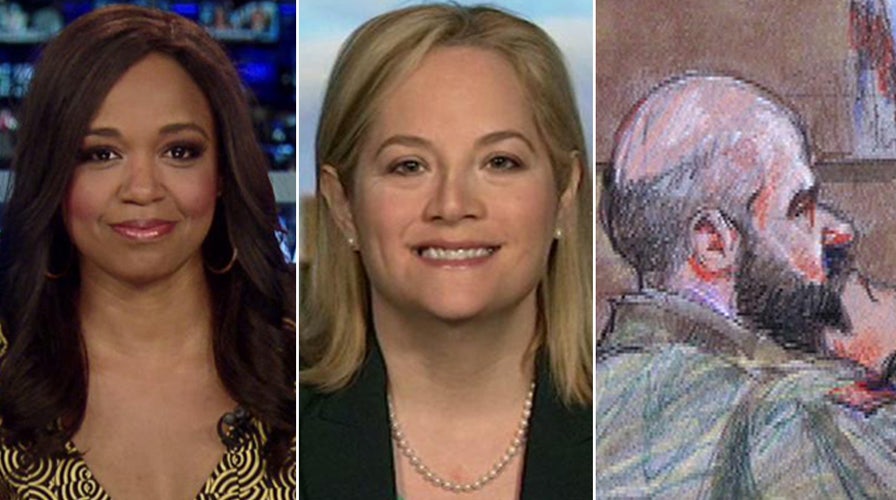Maj. Nidal Hasan offers no witnesses, rests case
Accused Fort Hood shooter presenting effective defense?
A jury is set to begin deliberating the fate of the soldier accused of killing 13 people and wounding more than 30 others at Fort Hood, Texas.
Army Maj. Nidal Hasan is sending only a single piece of evidence to the jury room when deliberations likely start Thursday: an evaluation from his boss that called him a good soldier.
By contrast, the U.S government has produced more than 700 pieces of evidence against Hasan, who hasn't put up a fight against charges that he committed the deadliest mass shooting ever on a U.S. military base.
Among the evidence put forward for the prosecution: Pill bottles that rattle with bullets removed form soldiers. Photos of Hasan prowling the outside of a Fort Hood medical building with a gun during the time of the shooting. Jurors can even handle that gun, an FN 5.7 semi-automatic pistol, which Hasan volunteered belonged to him during the 12-day trial.
Hasan rested his case Wednesday without calling any witnesses, but later told the judge that the attack was provoked because "these were deploying soldiers who were going to engage in an illegal war."
Hasan is representing himself but told a military judge Wednesday that he wouldn't be calling any witnesses in his defense.
The jury was dismissed after the prosecution asked for more time to prepare jury instructions and logistics before closing arguments.
But after jurors were dismissed, Hasan told the judge, Col. Tara Osborn, that the jury shouldn't have the option of convicting him on the lesser charge of voluntary manslaughter.
"I would like to agree with the prosecution that it wasn't done under the heat of sudden passion," Hasan said. "There was adequate provocation -- that these were deploying soldiers that were going to engage in an illegal war."
"There's not a shred of evidence to suggest the accused was acting under a heat of passion as he was committing the single largest mass murder on a U.S. military installation ever," said Col. Steve Henricks, one of the military's prosecutors, had said earlier.
Col. Tara Osborn asked prosecutors if they were ready to present closing arguments on Wednesday, but they said they would prefer to wait until Thursday.
Hasan has sat mostly silent, raising few objections, declining to let military lawyers take over his defense and questioning only three of prosecutors' witnesses. Several of those witnesses were shot during the attack and recalled hearing a shout of "Allahu Akbar!" -- Arabic for "God is great!" -- inside a crowded medical building before Hasan opened fire using a laser-sighted handgun.
Hasan, an American-born Muslim, suggested before trial that he wanted to argue that the killings were in defense of Taliban fighters in Afghanistan, but that strategy was rejected by the judge.
Since then, he has offered little for jurors to consider. In fact, during a brief opening statement, Hasan said evidence would show he was the shooter and called himself a soldier who had "switched sides" in a war.
Suspicions about Hasan's defense strategy elevated as the trial dragged on, as he leaked documents to journalists revealing that he told military mental health workers after the attack that he could "still be a martyr" if convicted and executed by the government.
Yet he never played the role of a high-threat, angry extremist in court. Hasan, who was paralyzed from the waist down after being shot by Fort Hood police officers responding to the rampage, didn't get agitated in court or raise his voice.
But that passive and muted presence convinced his court-ordered, standby attorneys that he was trying to convince jurors to convict him and sentence him to death. The attorneys had asked that their advisory roles be minimized, saying Hasan's defense strategy was "repugnant," but the judge refused.
Hasan began the trial signaling that he would call on just two people to testify -- one a mitigation expert in capital murder cases and the other a California professor of psychology and religion.
What evidence the military has produced will be given to 13 high-ranking military officers during deliberations. Jurors must unanimously convict Hasan of multiple killings, and then unanimously vote to sentence him to death, for Hasan to be sent to death row.


